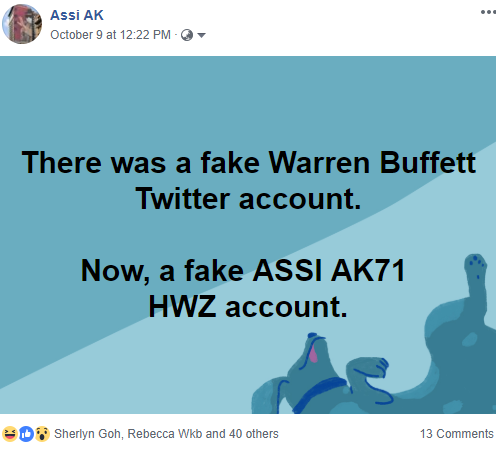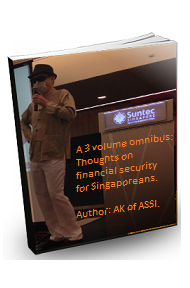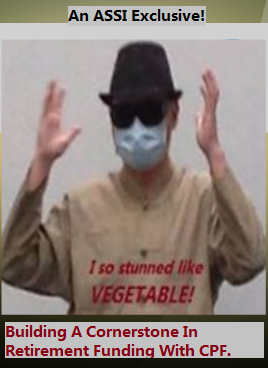Although we might feel quite clever or even smug from time to time, it is good to remind ourselves that we are not infallible and that we make mistakes.
In the same vein, it is quite impossible to make money in all our investments. Sometimes, we lose money. It is only natural.
Of course, I always say that if we know our motivations for being invested, we will know what to do when thrown into any situation.
However, what if we were to suffer massive losses?
Is the decision making process going to be any different?
Well, from a principled perspective, it shouldn't be any different.
If an investment is no longer the investment it was, if it no longer fits our motivation for being invested, then, it should be removed from our portfolio.
For many, this might be hard to do.
 |
| Avoid investing with borrowed funds. |
I am assuming that no one likes a hard time. Normally, anyway. It could mean lots of stress, depression and sleepless nights.
So, how do we avoid situations like this?
This might not be new to regular readers but if I were to distil what I have to say to just two points, they would be:
1. Do not invest more money than what we can afford to lose.
2. Recovery is made easier when we have a war chest ready.
Yes, AK sounds like a broken recorder but when the same things keep popping up, they are probably very important in one way or another and deserve some repeat mention.
Now, some might remember my experience with China Minzhong.
I was convinced it made a good investment.
The outcome was a good one but what if things had gone bad instead?
I said, "it might come as a surprise that I am not too affected by the possibility of a total loss if all allegations by Glaucus Research were proven true in due course...
"However, for people who have invested much more than they should have in China Minzhong, this could be a tall order. This is why I have said time and time again that we should always only invest with money we can afford to lose and not more."
For anyone who might not know what I am talking about or who might be interested in the blog post, here is the link:
China Minzhong: What could happen and what to do?
In a reply to a reader and guest blogger then, I said,
"It is fortunate that I limited my exposure to S-chips to no more than 10% of my portfolio. It is unfortunate the exposure to S-chips at this point in time is in a single stock."
So, what was the worst case scenario then?
10% of my investment portfolio could have gone down the toilet.
Painful? Yes.
Catastrophic? Not really.
I could probably recover the potential losses in a year, give or take a couple of months and this brings me to the next point.
 |
| Losing 10% of all our bananas? |
Not investing more money than what we can comfortably lose in the worst case scenario makes it easier to have closure in case things go wrong.
However, it is my experience that it is easier to have complete closure if we are able to make up for the losses through future gains.
"Remember, we do not have to be 100% invested all the time although it is easy to feel a bit left out or a bit regretful that we are not putting more of our money to work as stock prices climb higher. Now, it might not be a bad thing to have a war chest full of cash and not do anything with it."
See related post #1.
I have had my fair share, maybe more than my fair share, of bad investments in my life as an investor.
What I have shared in this blog post, distilled really to just 2 points, will hopefully be useful to anyone who is realistic enough to accept that investments can turn bad and how closure does not have to be too hard a process.
Related posts:
1. Revisiting AK's simple strategy with Charlie Munger.
2. Achieving $1 million in retirement funds.
"... without any money put aside, there is no way we would be able to take advantage of opportunities to buy on the cheap! Indeed, we might not even have to wait for a bear market to buy bombed out stocks as mispricing by Mr. Market could happen anytime ... "


































